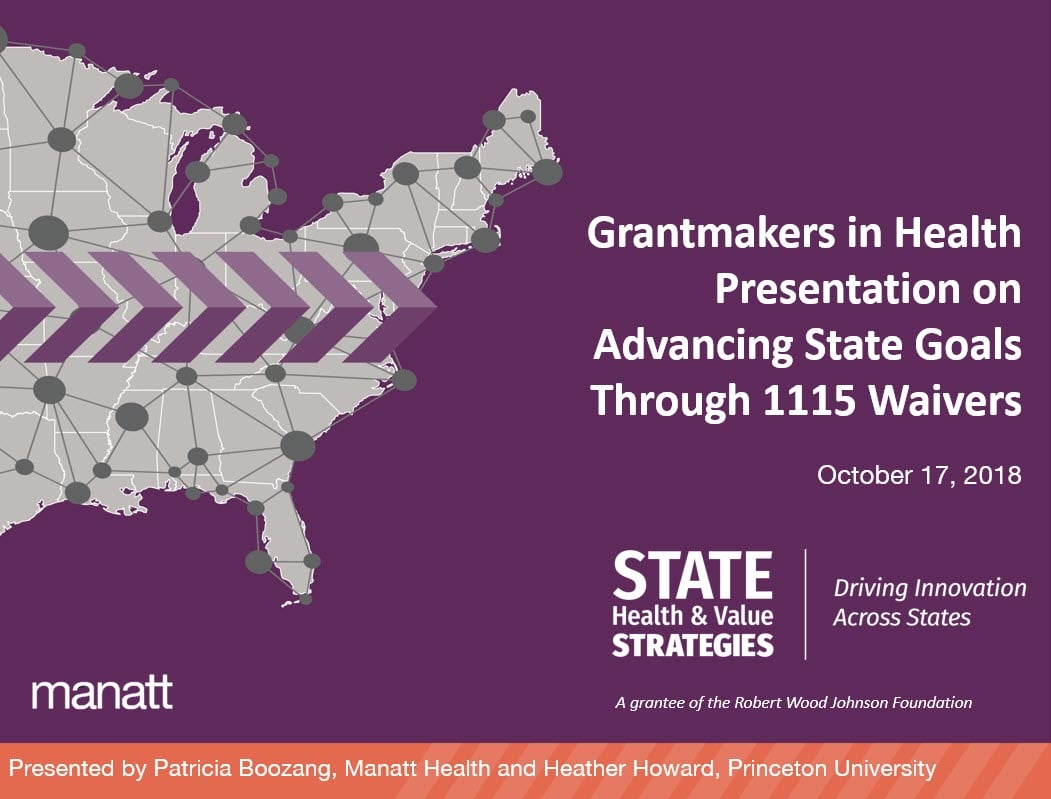Webinars

Medicaid Waivers: An Update
On this webinar, funders learned about approved and pending Medicaid waivers, explored the response to flexibilities such as work requirements and managed care contracting, and discussed how foundations might work within these processes to promote health outcomes and protect consumers.
What Funders Need to Know About “Public Charge”: An Analysis of the Published Rule
In this webinar, participants discussed the recently proposed “public charge” rule would allow federal officials to consider immigrants’ use of Medicaid, the Supplemental Nutrition Assistance Program, the Medicare Part D Low-Income Subsidy Program, and several housing programs in determining whether to deny entry into the United States or make adjustments to legal permanent resident status. Listeners learned more about the proposed rule and discussed ways that funders can take action.
Advancing Health Equity with Harm Reduction Strategies
On this webinar, funders learned how harm reduction approaches are being effectively implemented in community health centers and other settings, with a particular focus on services supporting homeless individuals and women with behavioral health conditions.
LIVESTREAM RECORDING: Count Us In! Roles for Health Funders in Ensuring a Fair and Accurate Census
This recording of the webcast from the first day of the 2018 GIH Fall Forum reviews upcoming census activities and shares practical strategies for philanthropic involvement.
Funders Census Initiative Briefing Series: Census 2020 Messaging Testing Results—Part 4
The Funders Census Initiative presented the latest briefing in its series on census messaging results, in partnership with the Democracy Funders Collaborative Census Subgroup.
